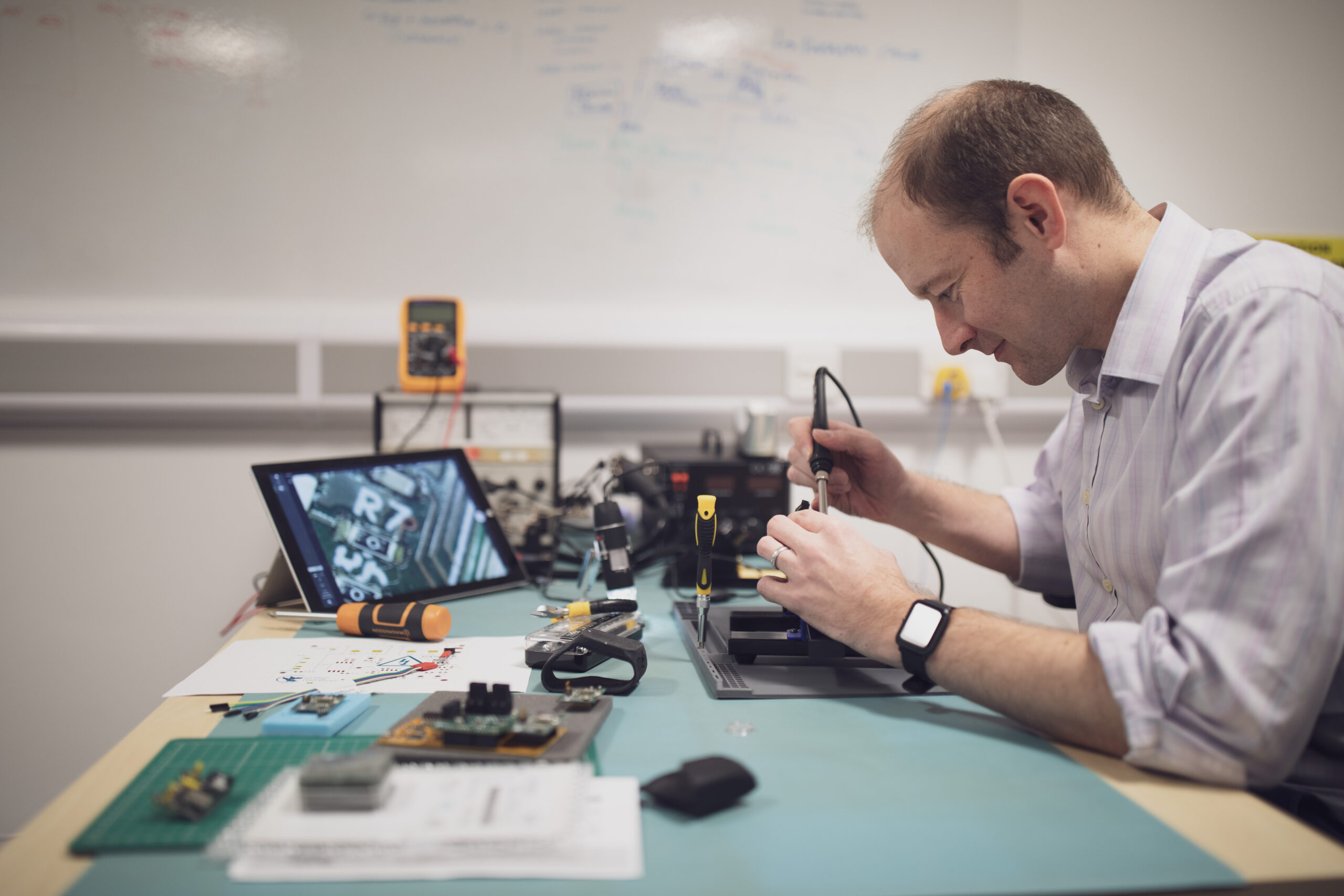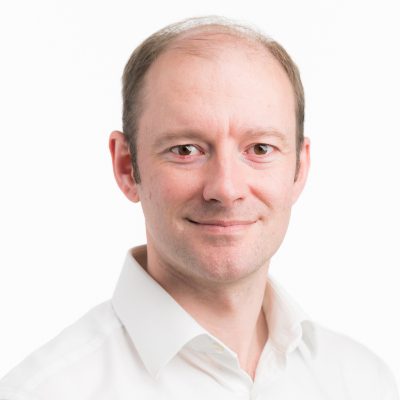Cerberus Security Laboratories joined Future Space four years ago. We caught up with Director and Co-founder Andy Lindsay to talk about their journey and what they’re working on now.
“We’ve been able to watch the journey of companies, as well as see the Centre team grow from a couple of people to the now team of six. The business support has expanded with it, and the links with UWE have advanced dramatically over that time.” – Andy Lindsay, Director and Co-founder
Tell us a bit about Cerberus Security Laboratories
Cerberus help manufacturers to secure their connected devices. Andy explains that whilst manufacturers are great at making their products, they can often lack the expertise to secure complex electronics and software, and especially the management of secure communications of these IoT devices – Particularly in the face of increased regulations. Cerberus offer security assessment, secure system design, implementation, and test. The team can help at any stage to improve security.
Andy previously worked for STMicroelectronics, designing chips for set-top-boxes (pay tv). The now trio of Directors were running separate consultancies covering software and hardware respectively, before coming together in 2016 to form Cerberus Security Laboratories.
Soon after, the team joined Future Space to begin their journey. Andy tells us that “there were many reasons to join Future Space, including the location, the quality of facilities, and the tech atmosphere”. Links with the University and Business support have also been important for Cerberus, providing access to research, student resources, and a wider technical network to facilitate marketing and awareness of their services.
Why is what you do important?
“The world is becoming more and more dependent on connected devices and the boundary between the physical world and the internet is becoming blurred. We have a duty to ensure that we’re not risking people’s lives and livelihoods to gain convenience. We need to invest in the security of these devices that are now proliferating our homes and cities. That’s my motivation and it’s what we do.”
Andy also comments that education is a key part of their role – making sure people understand the risks and seriousness of any breach.

How has Future Space helped your journey?
We started at the Centre in 2017 and took on our first employee, growing to four quickly. The office has given us plenty of space for our staff and equipment.
One of the biggest advantages of being based here is the collaboration opportunities with the other companies and the university – The team have engaged with several businesses and employed their services to help advance Cerberus’s development, as well as furthering their ability to offer a wider range of services for customers.
Often Cerberus get involved with other residents when they are developing products, to help advise and educate as to what the security risks to their product and business are.
Andy has been able to observe Future Space fill up over the years and watch as the vibrancy of the Centre has grown with the group of companies based here. “We’ve been able to watch the journey of companies, as well as see the Centre team grow from a couple of people to the now team of six. The business support has expanded with it, and the links with UWE have advanced dramatically over that time.”
Andy also commented that “the ‘advisory_space’ sessions over lockdown have been really valuable and we like the virtual platform as it’s easier to book advice when we need it.”
The team are now excited to get back to a more hybrid model of virtual and in-person events and workshops when restrictions allow.
“Tapping into these [UWE] resources is extremely useful.”
You’ve mentioned working with UWE – can you tell us about that?
Cerberus have benefitted from several funded projects with UWE, including assistance with 3D design and print work with the Health Tech Hub, and support through the Health Tech Accelerator Programme (HTAP). The HTAP support brings expertise to do research and literature reviews around hydration sensors and wearable tech. “This is a great chance for us to progress our own knowledge and development opportunities. Tapping into these resources is extremely useful.”
The team also took on a graduate intern in 2020 – The funded internship with UWE allowed Cerberus to bring in the skills and capacity needed to work on a project to optimise a cryptographic algorithm implementation. Since then, they have also benefitted from a design enterprise studio undergraduate project with three students working on a live project brief for an A&E wristband. “The students engaged well and were motivated by the project, and we’ve been able to draw value from the outputs of their work, saving us time and money.”
What does Cerberus Security Laboratories have in store for us in the future?
Andy and the team have recently been trying to leverage their consultancy experience to create a new product that will simplify the whole process for manufacturers to secure their devices. Whilst they can’t talk much about it now, they are hopeful that it could revolutionise the services Cerberus can offer. “We’re hoping later this year to have the first real world demonstration of this tech to share wider.”
Watch this space.

